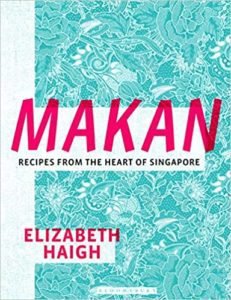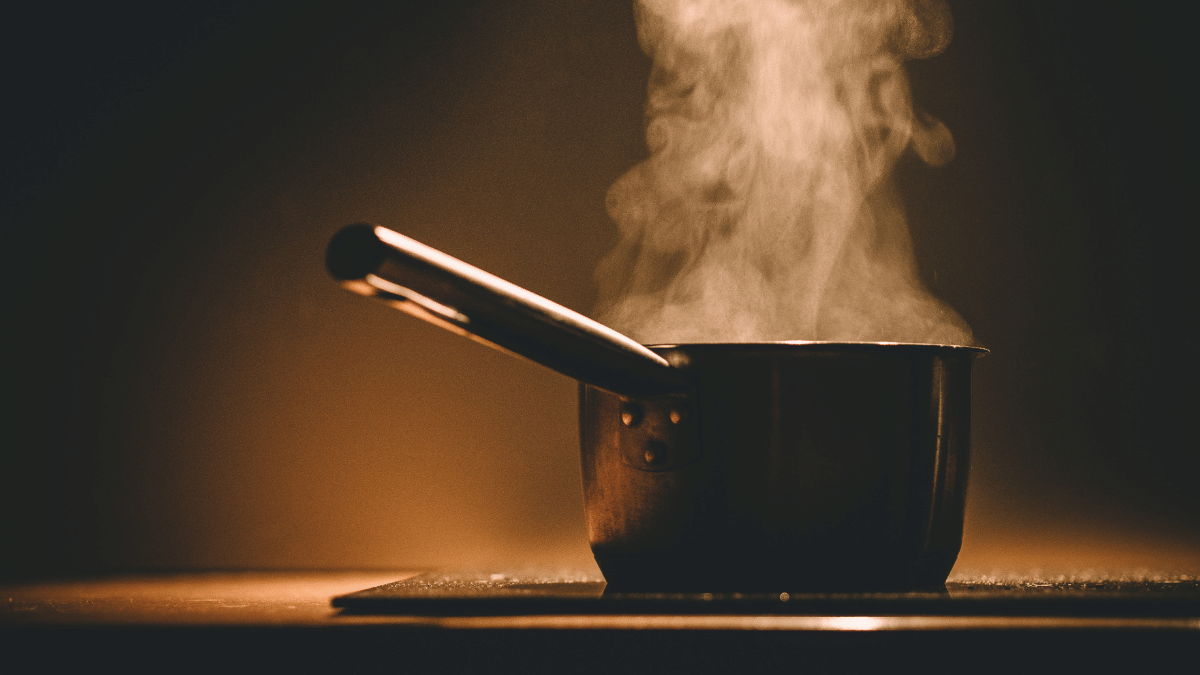The Elizabeth Haigh Cookbook Plagiarism Scandal
Elizabeth Haigh was, until this week, a rapidly rising start in the cooking world. Featured on the 2011 BBC MasterChef competition, she was the head chef at London restaurant Pidgin when it earned a Michelin Star and is the owner of the popular restaurant Mei Mei.
As part of that rise to stardom, Haigh published a book in the summer of 2021 entitled Makan. Part cookbook and part memoir, the book explored her Singaporean heritage, both culinary and personal.
However, it turns out that much of the book was anything but. Last week, fellow author Sharon Wee took to her Instagram to claim that Makan featured many recipes and elements from her 2012 cookbook Growing Up in a Nonya Kitchen.
Further allegations were not far behind as others began looking through Makam and found evidence that Makam included passages taken from other books. This included allegations by Singaporean poet and critic Daryl Lim, recipe author Bee Yinn Low and Singaporean spice businessman Anthony the Spicemaker to name a few.
Shortly after the initial allegations, the Makam’s publisher, Bloomsbury, released a one-line statement that simply read, “This title has been withdrawn due to rights issues.” As such, new copies of Makan are now unavailable on major retailer websites.
But while the book has been retracted, many are not satisfied with Bloomsbury limited statement. Some claim that it casts doubt on Bloomsbury’s editorial process and is calling for the publisher to say more about its role in the plagiarism.
However, that seems highly unlikely as the publisher has remained tight-lipped about the controversy, even as the number of allegations has grown.
Still, this case rests at an interesting intersection of both law and ethics. So it’s worth taking the time to both understand the plagiarism that took place and the potential legal ramifications of it.
Understanding the Plagiarism and its Consequences

The plagiarism itself is straightforward to understand. One quick look at the examples shows clearly that Haigh copied words from other sources and then attempted to rewrite the relevant passages. However, long sections of verbatim text remain.
For example:
“It faced many challenges along the way. It first started with converting her handwritten recipe measurements from katis and tahils (old Chinese measurements) and learning the different daum (or herbs) and rempah (spice pastes).”
Sharon Wee – Growing Up in a Nonya Kitchen
“It faced many challenges along the way. It first started with converting her handwritten recipe measurements . . . and learning the different daun (or herbs) and rempah (spice pastes).” –
Elizabeth Haigh – Makan
Ultimately, there are dozens of similar examples through the book including many others involving Wee’s work.
However, from a legal standpoint, the case is an interesting one. Under U.S. copyright law, one typically cannot copyright a recipe itself. Though an author can protect any images or additional descriptive text, the recipe itself cannot be protected as it’s just a set of instructions.
Strangely enough, this case involves a great deal of that additional text. Both Makan and Growing Up in a Nonya Kitchen are combination works, blending both memoir and traditional cookbook elements. Judging from the examples, Haigh copied both recipes and backstory in her plagiarism.
But, even though a legal fight is possible, it’s also not likely. Expensive and time-consuming, it’s simply not necessary. As we discussed in March 2015, the cooking community self-polices itself around these issues and has a long history of addressing plagiarism within its ranks, even when the law can’t.
Being known as a recipe plagiarist, let alone a memoir plagiarist, in this community is often a death knell for one’s reputation. Even if Haigh can resume her rise to international stardom, it is very likely that this will be a weight around her neck the whole way.
However, there are some very difficult questions that do need to be answered, even if it is very unlikely that we will get those answers.
Unanswered Questions
To my mind, one question stands out as unanswered: Did Haigh write the book?
That might seem like a silly question, but celebrity authors rarely write their books. They typically work with a ghostwriter of some stripe and have varying degrees of involvement with the process.
Right now, we don’t know if this book was completely Haigh’s work or if she used a ghostwriter to help with the process in some way. If it’s the latter, it would not be the first time we have seen a ghostwriter disparage the named author by plagiarizing. This is a very real risk of using a ghostwriter and one that should be guarded against.
To be clear, if there is a ghostwriter this doesn’t absolve Haigh of responsibility. When your name is on the front of the book, you are ultimately responsible for its content. Haigh and her publisher could have and should have taken greater protections to prevent this.
But that leads us to the next question: What did the publisher do, and what are their plans to prevent this in the future?
Truthfully, the response of Bloomsbury is the most disappointing part of this story. While they were right to quickly retract the book, the complete lack of transparency afterward is extremely disappointing and unhelpful, especially to those who were copied from.
However, the person that this may ultimately harm the most is Haigh. Right now, Haigh is bearing the burden of the plagiarism solely on her shoulders. But it’s almost certain that others were involved in the book. If not a ghostwriter, then editors at the publisher and various other writing services that are commonly used.
By stonewalling, the publisher is making it so that Haigh and Haigh alone is at fault. Even though there is almost certainly blame to go around. After all, the publisher, at the very least, either ignored or didn’t look for warning signs that could have prevented this.
The publisher, clearly, did not do its job and protect its author. Regardless of how much actual writing Haigh did for this book, she’s going to be the one that suffers for it, simply because her name is on the cover.
Bottom Line
Ultimately, all this is a reminder to anyone that, when you put your name on a book or any other creative work, you bear the responsibility for any ethical violations that take place within it. This includes plagiarism, fabrication and falsification.
If Haigh wrote this book herself and committed the plagiarism contained within it, she absolutely should be held accountable for that and the recipe community is doing exactly that. However, if she had a ghostwriter or the plagiarism came as part of the editing process, she still has responsibility, but the situation is much more nuanced.
However, with the stonewalling by the publisher, they are leaving both Haigh and those that were copied out to dry. In what is likely a bid to protect themselves legally, they are harming all involved, including themselves.
After all, the questions about Bloomsbury aren’t going to go away. One thing I’ve always been impressed with in the cooking community is that they have long memories about these kinds of things and won’t be quick to forget the transgressions of both Haigh and Bloomsbury.
Bloomsbury can do a lot to mitigate that with good transparency, but that seems highly unlikely at this point.
Want to Reuse or Republish this Content?
If you want to feature this article in your site, classroom or elsewhere, just let us know! We usually grant permission within 24 hours.
